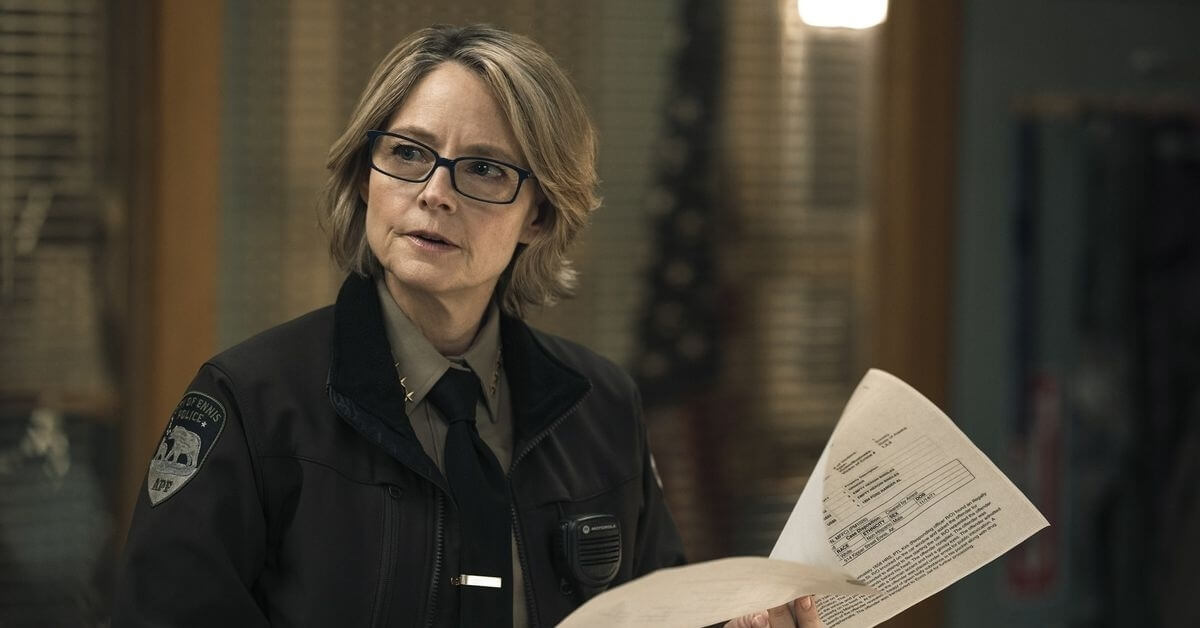As the frosty winds of “True Detective” Season 4 cut through the air, viewers are left shivering with anticipation and a slew of unanswered questions.
Liz Danvers, portrayed with a compelling mix of grit and vulnerability, stands at the heart of this chilling narrative, her past as enigmatic as the Alaskan wilderness the series is set against.
Every episode peels back layers, yet halfway through, we find ourselves grasping at the edges of Danvers’ story, yearning for more. What haunts the corridors of her memories? Who is the phantom child that flickers through her flashbacks, leaving a trail of sorrow in his wake?
Enter the mystery of Liz Danvers’ son. As hints and shadows converge, the specter of a lost child emerges from the mist, tethering Liz to a past she can neither embrace nor entirely escape.
The audience is drawn into this puzzle, piecing together fragments of a life interrupted, a family fractured. But what exactly happened to Liz Danvers’ son? Did Danvers lose a son, or is there more to this tale than meets the eye?
Liz Danvers’ son, Holden, died in a traffic accident alongside his father, who also happens to be Leah’s biological dad. This devastating event is the linchpin of Liz’s bitterness and her complex relationship with Leah, her stepdaughter.
Unraveling the Tragedy: True Detective And A Grieving Mother
Holden’s death and its aftermath are central to understanding the depths of Liz Danvers’ character. HBO’s “True Detective: Night Country” intricately weaves this personal tragedy into its narrative fabric, revealing the profound impact on Liz and those around her.
The series adeptly navigates the thin ice between reality and the supernatural, with Holden’s death serving as a crucial nexus point.
Leah, Liz’s stepdaughter, describes a time when Liz was more carefree, hinting at a life once filled with joy and laughter before it was irrevocably changed by tragedy.
Flashbacks suggest that Holden was not just a figment of grief but a real, vibrant part of Liz’s life, a connection underscored by the haunting visions of a child’s hand and the polar bear toy—a symbol of innocence lost and a bond that transcends death.
Captain Ted Connelly’s remarks about Liz being a fine cop before “the thing” with Holden happened further illuminate the depth of her loss. This event catalyzed Liz’s transformation into the hardened, jaded detective we see, her life now a relentless pursuit of justice, perhaps as a means to fill the void left by her unimaginable loss.
Putting On Our Detective Hats
The series hints at a spiritual dimension to this tragedy, particularly through Evangeline Navarro’s visions. These supernatural elements underscore the show’s exploration of grief, loss, and the human need to find meaning in the face of the inexplicable.
Navarro’s encounter with the crash site in her vision suggests that the accident is not just a plot point but a pivotal moment that connects the physical and metaphysical worlds.
As “True Detective: Night Country” marches towards its conclusion, these questions linger, inviting viewers to reflect on the nature of grief, the search for meaning, and the possibility of hope amid despair.
The series not only entertains but also challenges us to consider the complexities of the human condition, making Liz Danvers’ story one that resonates long after the screen fades to black.
Can Liz Danvers find solace or redemption in her quest for justice, or is her journey one of perpetual mourning?
In the face of tragedy, what role do supernatural beliefs play in coping with loss and finding closure? Share your theories and opinions in the comments section below.

